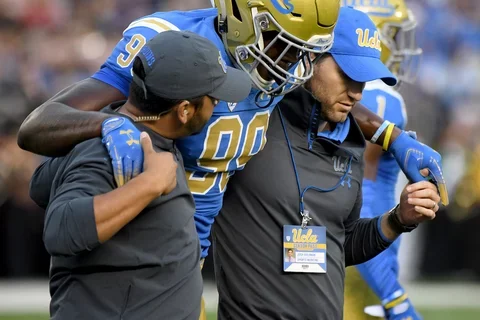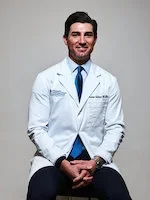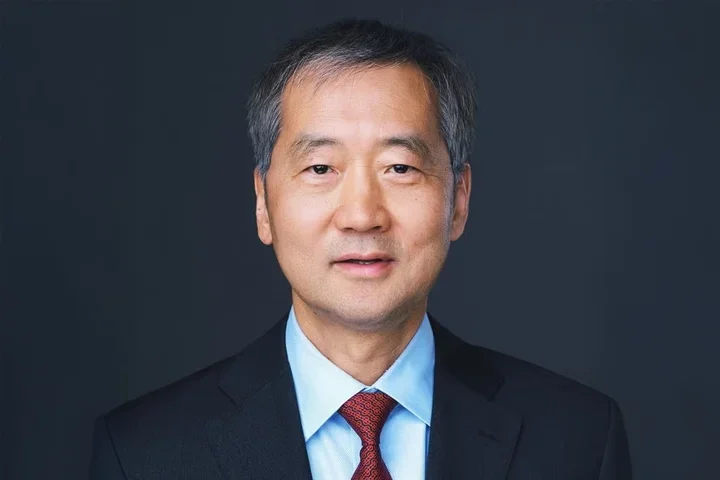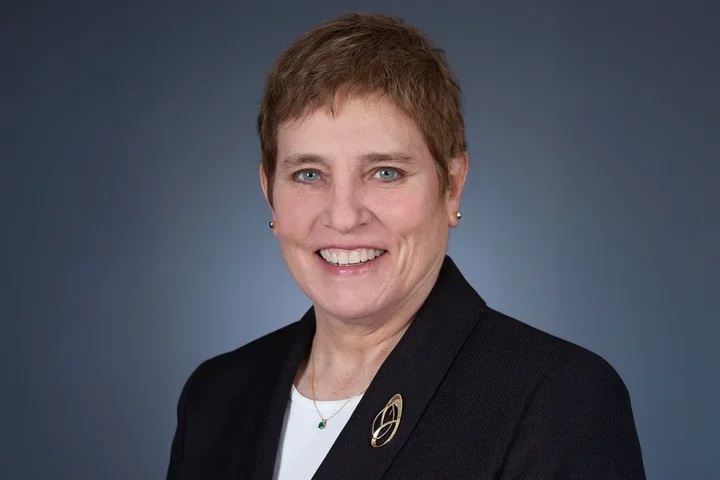Team Physician - Sports Medicine Career
Medical Expert Interview

Sports Medicine Careers
Sports medicine is an area of healthcare focused on athletes. A sports medicine practice covers myriad medical and physiological goals and concerns that can and do impact athletes.
Such an expansive goal demands a commensurate breadth of practitioners and professionals. That’s why the field of sports medicine encompasses a dynamic range of job types and career opportunities.
The article below explores being a team physician. Additional sports medicine career roles include:
- Certified Athletic Trainer
- Orthopedic Surgeon
- Physical Therapist
- Sports Neurologist
- Sports Cardiologist
- Sports Psychologist
- Sports Nutritionist / Registered Dietician
Sports Medicine Career Overview
Meet Joshua T. Goldman, MD, Team Physician at UCLA
A celebrated expert in non-surgical and minimally invasive orthopedic care, Joshua T. Goldman, MD serves as team physician for UCLA’s football, men's soccer, and women's beach volleyball teams and the Los Angeles Chargers.

Caring for athletes is among his specialties. In the past, he’s worked with a variety of other UCLA teams and volunteered as team physician at the United States Olympic Training Center, among other organizations.
In addition to his work in sports medicine, Dr. Goldman treats patients at UCLA Health and teaches in the Department of Orthopedic Surgery at the David Geffen School of Medicine at UCLA (DGSOM).
While the “team” in his job title refers to the athletes he cares for, Dr. Goldman loves that being a team physician also means working on a team of physicians and sports medicine professionals, including athletic trainers, surgeons, sports psychologists, sports dietitians, physical therapists, and exercise physiologists.
These collaborations enhance the meaning and satisfaction he finds in his work.
“I love being part of a sports medicine team,” he says. “It’s incredibly exciting when people who are so good at what they do work in concert to support the athletes under their care.”
What Does a Team Physician Do?
A team physician is a medical doctor affiliated with a sports team or organization. Team physicians do for a sports team what a primary care or family medicine doctor might do for a family. They manage routine, preventative, and urgent medical care.
They serve as a team’s first touchpoint for medical attention and/or advice. Team physicians can provide the full range of treatment modalities available at most healthcare facilities, including medications and minimally invasive procedures.
Teams also count on their physician’s expertise and experience in triaging more complicated cases to the appropriate member of the care team or an outside specialist.
What conditions does a team physician handle?
Team physicians can help athletes with nearly any medical concern. Issues they commonly care for include:
- Concussions
- Stress fractures
- Meniscal injuries
- Femoroacetabular impingement (FAI)
- Fractures
- Muscle sprains and strains
- Sciatica
- Shin splints
- Runner’s knee
- Tennis elbow
- Achilles tendinopathy
- Superior labrum anterior to posterior (SLAP) lesions
- Disc herniation
- Posterior cruciate ligament (PCL) tears
How to Become a Team Physician
It takes more than 13 years to complete the education and training required to become a team physician:
- Earn a bachelor’s degree.
- Estimated time required: 4 years
- Earn a medical degree.
- Estimated time required: 4 years
- Complete residency training in a primary care specialty, such as family medicine or internal medicine.
- Estimated time required: 3 years
- Complete a sports medicine fellowship, such as the primary care sports medicine fellowship at UCLA.
- Estimated time required: 1 year
- Secure a license to practice by passing all steps of the United States Medical Licensing Examination (USMLE).
- Estimated time required: 1 - 6 months
Optional and/or ongoing:
- Complete supplemental training and certifications—such as the Certificate of Added Qualification (CAQ) in Sports Medicine—to gain additional specialized skills in sports medicine.
- Estimated time required: 1 year (Fellowship Year)
Where can aspiring team physicians find additional information about education, training, and certification?
- American Medical Society for Sports Medicine
- The National Resident Matching Program Sports Medicine Match
- American Board of Internal Medicine - Sports Medicine Subspecialty Certification
- American Medical Society for Sports Medicine (AMSSM)
- Accreditation Council for Graduate Medical Education (ACGME)
- American Board of Physical Medicine and Rehabilitation (ABPMR)
Advice for Aspiring Team Physicians
Dr. Goldman wants anyone considering becoming a team physician to be aware of one important detail about the role: Team physicians rarely care exclusively for the team. Most maintain a clinical practice or appointments in addition to their role as team physician.
In many cases, their other clinical work makes up a majority of their work.
“Team physicians take care of athletes, but we also take care of the general public who have issues like runner's knee and shoulder impingement, mild arthritis, or other musculoskeletal problems,” Dr. Goldman explains. “That's what we spend close to 90% of the time doing—taking care of non-athletes with musculoskeletal issues.”
He advises anyone interested in becoming a team physician for the glamor and privilege of hanging out on the sidelines of major athletic events to consider a different line of work—or reconsider their priorities. That’s because the ideas people have about what being a team physician might be like, from television and media, for example, is a myth.
“Everyone thinks that my job is to run onto a football field, evaluate an athlete, and bring them off the field,” Dr. Goldman explains, adding that even his son thinks he’s a “football doctor.”
“That’s what my friends think I do—stand on the sidelines all day and put bandages on athletes.”
These misconceptions have led to something of an inside joke about sports medicine practitioners: What everyone thinks they do is actually something they try to avoid.
“We never want to end up on the field or on television because that means there’s a big injury or concern.”
Dr. Goldman enjoys working behind the scenes, on the day-to-day medical concerns—such as joint issues and tendonitis—that arise in a patient population of athletes.
He urges aspiring team physicians to make sure that’s what they want to do, or even better, that they’ll love doing it.
“You have to love the bread-and-butter of the job, because that's what you'll be doing most of the time,” Dr. Goldman says. “If you find the common issues we treat boring, you’re not going to enjoy your job as a team physician. But if you really do find those things exciting and interesting, then you’ll love it.”
Dr. Goldman truly does find providing essential everyday care interesting, especially providing it for a patient population as remarkable as athletes. He compares his experience treating athletes to that of an automobile mechanic working on the world’s most high-performance cars.
“If you're a mechanic, you want to take care of Ferraris and Formula One cars,” he explains. “That’s how I feel about caring for athletes. They’re practically superhuman—so in tune with their bodies and so motivated to heal and perform.”
Quick Facts: Team Physician
What are the core job responsibilities of a team physician?
- Manage team member recovery and rehabilitation following injuries.
- Address sports-related health concerns using the full range of medical care modalities, including medication and minimally invasive procedures.
- Offer medical expertise in support of routine strategies for optimizing health and reducing risk of injury.
- Provide support for away games, including preparing for every possible scenario that could happen before, during, and after team travel.
Where can a team physician find employment?
Team physicians may find employment opportunities in a variety of different settings, including:
- Professional athletic teams
- Olympic teams and organizations
- School athletic teams of all levels
- Athletic organizations, associations, and conferences
How much does a team physician make?
General physicians practicing in the United States make a mean of $248,640 annually, according to recent data from the U.S. Bureau of Labor Statistics.
A team physician’s earning potential varies widely depending on…
- Additional clinical appointments. Most team physicians maintain an additional clinical practice beyond their role as team physician.
- The team they serve. For example, a physician serving a professional athletic team may earn more than a physician serving a team at a mid-sized college.
Other factors that affect earning potential include the physician’s location and industry of work, education, and certifications.



